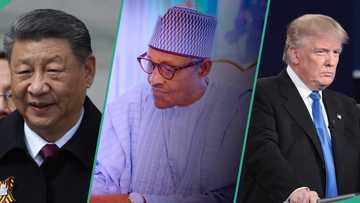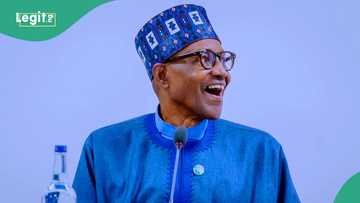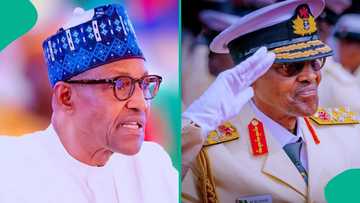EndSARS, Lazy Youths, Other Viral Moments That Defined Buhari’s Presidency Online
- Former President Buhari’s time in office was shaped by viral controversies and sharp online reactions that still spark debate today
- From the “lazy Nigerian youths” uproar to the Twitter ban and cashless policy chaos, social media amplified public frustration and humour alike
- His presidency was also marked by conspiracy rumours and remarks that turned into national talking points, reflecting the power of digital discourse
The death of former President Muhammadu Buhari at 82 has reignited conversations about the legacy he leaves behind.
Beyond policy debates and the political shifts of his era, Buhari’s presidency was shaped in no small part by moments that caught fire on social media, spawning debates, criticism and, often, humour that kept Nigerians engaged online.
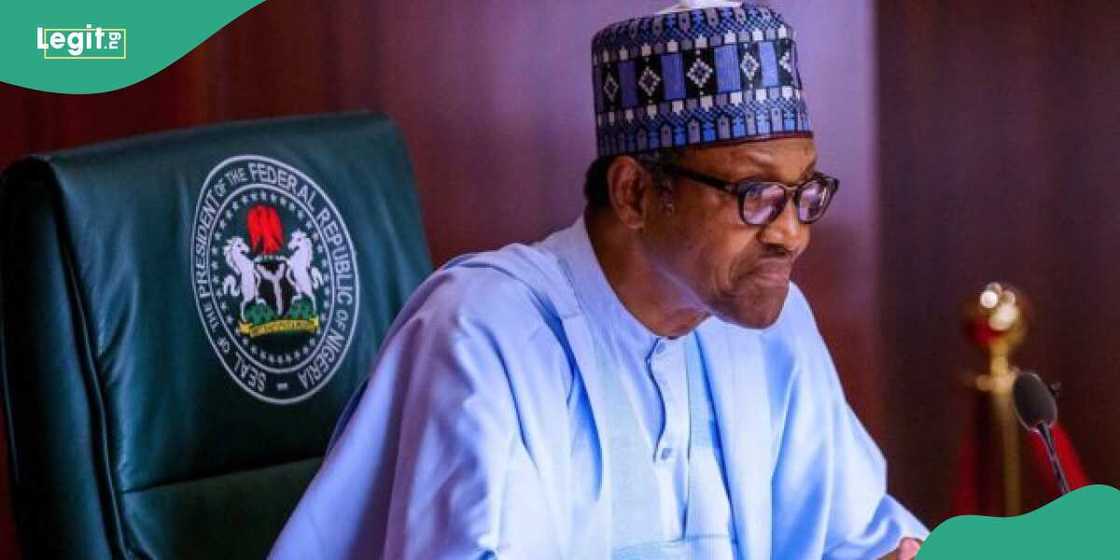
Source: Facebook
From controversial remarks and rumours to bold policy moves that drew sharp digital reactions, these moments have become a permanent part of his story.
Here are seven viral controversies and defining episodes that trended heavily during Buhari’s years in power and continue to shape how many Nigerians remember him.
1. “Lazy Nigerian Youths” Backlash (2018)
During a discussion at the Commonwealth Business Forum in London, Buhari suggested that many young Nigerians expected opportunities without effort despite the country’s resources.
Though he never actually used the exact words “lazy Nigerian youths,” the phrase quickly became the summary of his remarks on social media.
The reaction was swift and intense, with hashtags, memes and critical commentary turning the phrase into a national debate about leadership, youth unemployment and the gap between citizens and government.
2. “Jubril of Sudan” Conspiracy (2017–2018)
Following his lengthy medical leave in the United Kingdom in 2017, wild conspiracy theories surfaced online claiming Buhari had died and been replaced by a body double named “Jubril” from Sudan.
The rumour spread widely enough to draw Buhari’s own denial during a speech in Poland, where he laughed and reassured Nigerians that it was really him. Despite the denial, the rumour lived on, fuelling more jokes, videos and commentary that kept it alive long after.
3. Twitter Ban Controversy (2021)
In June 2021, Nigeria suspended Twitter after the platform deleted one of Buhari’s tweets referencing the civil war, citing a violation of its rules.

Source: Getty Images
The ban lasted seven months and drew criticism from local activists, media and international organisations, who saw it as an attack on free expression.
Nigerians responded by using VPNs to stay online, turning the ban itself into a symbol of defiance and sparking debates on digital rights and censorship.
4. Border Closure Policy (2019–2020)
Buhari’s government decided to close Nigeria’s land borders, aiming to curb smuggling and boost local farming.
Supporters saw it as a step toward self-reliance, but on social media, many Nigerians voiced frustration over rising food prices and disrupted trade.
The online debate reflected the daily economic pain felt by small traders and households, highlighting the human cost of a policy that dominated public discourse during that period.
5. #EndSARS Silence and Speech (2020)
The #EndSARS protests against police brutality in October 2020 were a major moment in Nigeria’s modern history. As protests grew and violence escalated, Buhari’s silence drew heavy criticism.
When he finally addressed the nation, many citizens found the speech lacking in empathy, particularly after the tragic events at Lekki Toll Gate.
The hashtag #WhereIsBuhari summed up the frustration, marking one of the most intense social media storms of his tenure.
6. Cashless Policy Chaos (2023)
Late in his presidency, Buhari backed a Central Bank policy to redesign naira notes and enforce a cashless economy.
The rollout brought chaos instead of reform, as cash scarcity spread across markets and cities.
Protests, anger and countless viral posts followed, with Nigerians criticising the policy’s timing and its real impact on daily life. For many, it overshadowed the final months of his government.
7. “My Wife Belongs to the Kitchen” Remark (2016)
At a joint press event with German Chancellor Angela Merkel, Buhari responded to his wife Aisha’s criticism of his administration by saying she belonged in the kitchen and the other room.
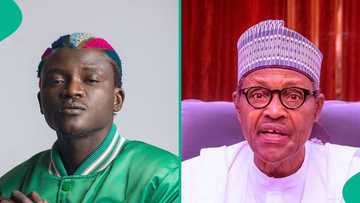
Read also
Buhari's death: Portable mourns ex-president, shares his wishes, "Na him order tollgate shooting"
The remark triggered an international media storm and viral reactions across Nigerian social media. Critics saw it as revealing a dismissive view of women, while defenders argued it was only a joke—but it remained one of his most quoted and controversial moments.
Tinubu orders Shettima after Buhari's death
Earlier, Legit.ng reported that President Tinubu had confirmed the death of former Nigerian president Muhammadu Buhari in London after a prolonged illness.
Tinubu ordered Vice President Kashim Shettima to travel to the UK to bring Buhari’s body home and directed flags to be flown at half staff.
Buhari, who led Nigeria both as military head of state and elected president, leaves behind a significant legacy in the nation’s political history.
Source: Legit.ng


